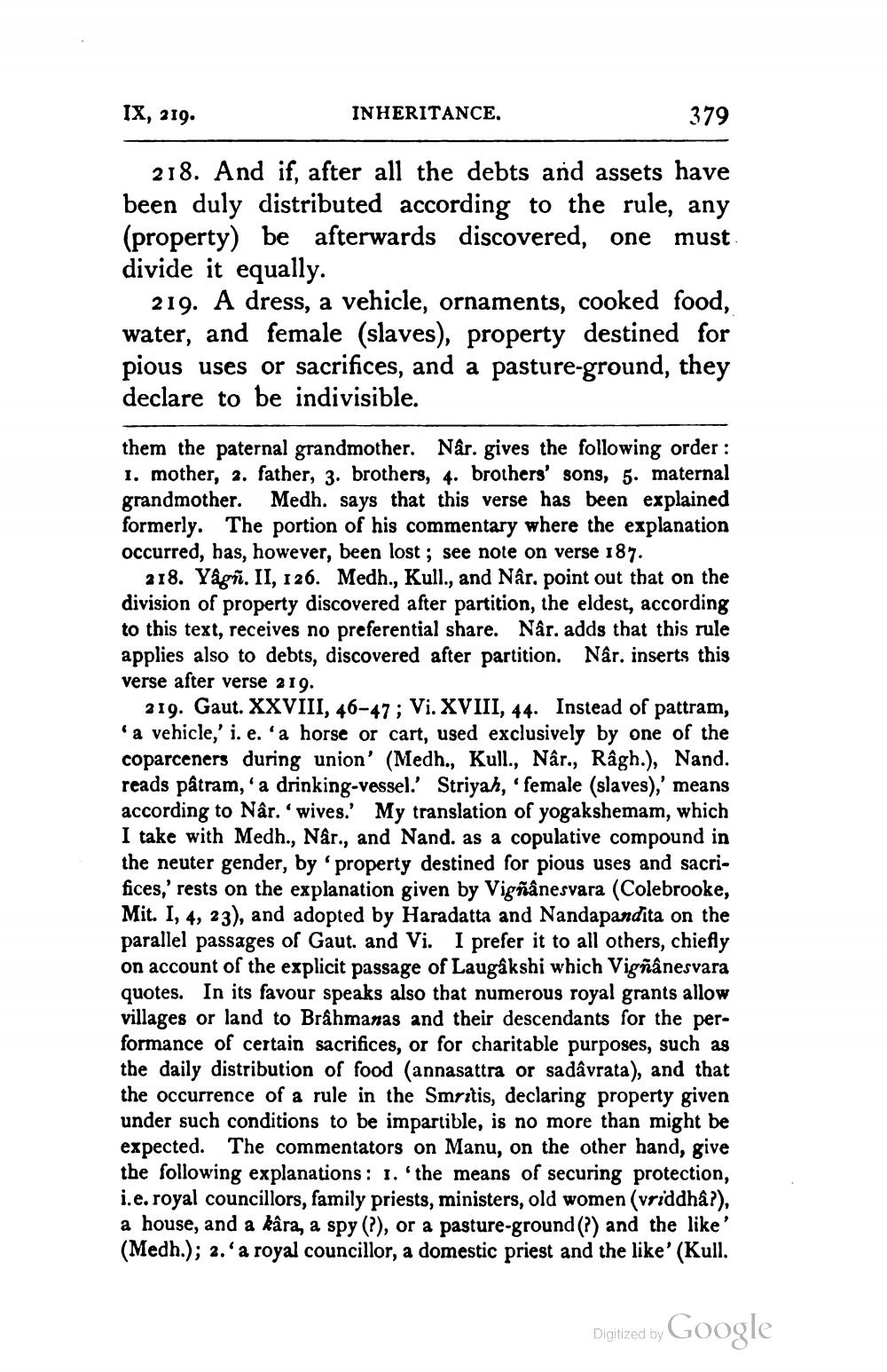________________
IX, 219.
INHERITANCE.
379
218. And if, after all the debts and assets have been duly distributed according to the rule, any (property) be afterwards discovered, one must divide it equally.
219. A dress, a vehicle, ornaments, cooked food, water, and female (slaves), property destined for pious uses or sacrifices, and a pasture-ground, they declare to be indivisible.
them the paternal grandmother. Når. gives the following order : 1. mother, 2. father, 3. brothers, 4. brothers' sons, 5. maternal grandmother. Medh. says that this verse has been explained formerly. The portion of his commentary where the explanation occurred, has, however, been lost; see note on verse 187.
218. Yågñ. II, 126. Medh., Kull., and Nâr, point out that on the division of property discovered after partition, the eldest, according to this text, receives no preferential share. Når. adds that this rule applies also to debts, discovered after partition. Når. inserts this verse after verse 219.
219. Gaut. XXVIII, 46-47; Vi. XVIII, 44. Instead of pattram, 'a vehicle,' i. e. 'a horse or cart, used exclusively by one of the coparceners during union' (Medh., Kull., Nâr., Râgh.), Nand. reads pâtram,' a drinking-vessel.' Striyah, 'female (slaves),' means according to Nâr.' wives.' My translation of yogakshemam, which I take with Medh., Nár., and Nand. as a copulative compound in the neuter gender, by property destined for pious uses and sacrifices,' rests on the explanation given by Vigñânesvara (Colebrooke, Mit. I, 4, 23), and adopted by Haradatta and Nandapandita on the parallel passages of Gaut. and Vi. I prefer it to all others, chiefly on account of the explicit passage of Laugâkshi which Vigñânesvara quotes. In its favour speaks also that numerous royal grants allow villages or land to Brâhmanas and their descendants for the performance of certain sacrifices, or for charitable purposes, such as the daily distribution of food (annasattra or sadávrata), and that the occurrence of a rule in the Smritis, declaring property given under such conditions to be impartible, is no more than might be expected. The commentators on Manu, on the other hand, give the following explanations: 1. 'the means of securing protection, i.e. royal councillors, family priests, ministers, old women (vriddhå?), a house, and a kâra, a spy (?), or a pasture-ground(?) and the like' (Medh.); 2. a royal councillor, a domestic priest and the like' (Kull.
Digitized by Google




